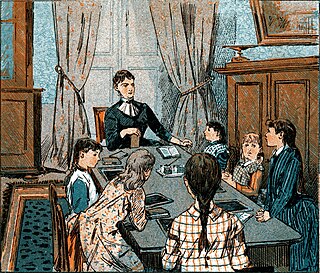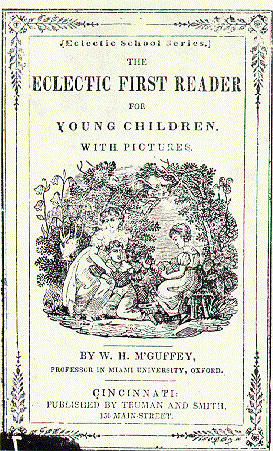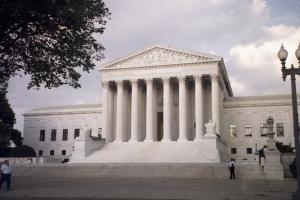Related Research Articles

Christopher Marlowe, also known as Kit Marlowe, was an English playwright, poet, and translator of the Elizabethan era. Marlowe is among the most famous of the Elizabethan playwrights. Based upon the "many imitations" of his play Tamburlaine, modern scholars consider him to have been the foremost dramatist in London in the years just before his mysterious early death. Some scholars also believe that he greatly influenced William Shakespeare, who was baptised in the same year as Marlowe and later succeeded him as the preeminent Elizabethan playwright. Marlowe was the first to achieve critical reputation for his use of blank verse, which became the standard for the era. His plays are distinguished by their overreaching protagonists. Themes found within Marlowe's literary works have been noted as humanistic with realistic emotions, which some scholars find difficult to reconcile with Marlowe's "anti-intellectualism" and his catering to the prurient tastes of his Elizabethan audiences for generous displays of extreme physical violence, cruelty, and bloodshed.

Homeschooling or home schooling, also known as home education or elective home education (EHE), is the education of school-aged children at home or a variety of places other than a school. Usually conducted by a parent, tutor, or online teacher, many homeschool families use less formal, more personalized and individualized methods of learning that are not always found in schools. The actual practice of homeschooling varies considerably. The spectrum ranges from highly structured forms based on traditional school lessons to more open, free forms such as unschooling, which is a lesson- and curriculum-free implementation of homeschooling. Some families who initially attended a school go through a deschool phase to break away from school habits and prepare for homeschooling. While "homeschooling" is the term commonly used in North America, "home education" is primarily used in Europe and many Commonwealth countries. Homeschooling should not be confused with distance education, which generally refers to the arrangement where the student is educated by and conforms to the requirements of an online school, rather than being educated independently and unrestrictedly by their parents or by themselves.
Whole language is a philosophy of reading and a discredited educational method originally developed for teaching literacy in English to young children. The method became a major model for education in the United States, Canada, New Zealand, and the UK in the 1980s and 1990s, despite there being no scientific support for the method's effectiveness. It is based on the premise that learning to read English comes naturally to humans, especially young children, in the same way that learning to speak develops naturally.

Phonics is a method for teaching reading and writing to beginners. To use phonics is to teach the relationship between the sounds of the spoken language (phonemes), and the letters (graphemes) or groups of letters or syllables of the written language. Phonics is also known as the alphabetic principle or the alphabetic code. It can be used with any writing system that is alphabetic, such as that of English, Russian, and most other languages. Phonics is also sometimes used as part of the process of teaching Chinese people to read and write Chinese characters, which are not alphabetic, using pinyin, which is alphabetic.

John Caldwell Holt was an American author and educator, a proponent of homeschooling, and a pioneer in youth rights theory.

The Eclectic Readers were a series of graded primers for grade levels 1–6. They were widely used as textbooks in American schools from the mid-19th century to the early 20th century, and are still used today in some private schools and homeschooling.
Reading Recovery is a short-term intervention approach designed for English-speaking children aged five or six, who are the lowest achieving in literacy after their first year of school. For instance, a child who is unable to read the simplest of books or write their own name, after a year in school, would be appropriate for a referral to a Reading Recovery program. The intervention involves intensive one-to-one lessons for 30 minutes a day with a teacher trained in the Reading Recovery method, for between 12 and 20 weeks.
The National Reading Panel (NRP) was a United States government body formed in 1997 at the request of Congress, it was a national panel with the aim of assessing the effectiveness of different approaches used to teach children to read.

Synthetic phonics, also known as blended phonics or inductive phonics, is a method of teaching English reading which first teaches the letter sounds and then builds up to blending these sounds together to achieve full pronunciation of whole words.

Applied Scholastics (APS) is an organization that promotes and licenses the use of study techniques created by L. Ron Hubbard, the founder of Scientology. Applied Scholastics is operated by the Church of Scientology.

Homeschooling constitutes the education of about 3.4% of U.S. students as of 2012. The number of homeschoolers in the United States has increased significantly over the past few decades since the end of the 20th century. In the United States, the Supreme Court has ruled that parents have a fundamental right to direct the education of their children. The right to homeschool is not frequently questioned in court, but the amount of state regulation and help that can or should be expected continues to be subject to legal debate.
Calvin Hoffman, born Leo Hochman in Brooklyn, NY, was an American theater critic, press agent and writer who popularized in his 1955 book The Man Who Was Shakespeare the Marlovian theory that playwright Christopher Marlowe was the actual author of the works attributed to William Shakespeare. Like other alternate Shakespearean authorship theories, Hoffman's claims have been largely dismissed by mainstream Shakespearean scholars.
James S. Shapiro is Professor of English and Comparative Literature at Columbia University who specializes in Shakespeare and the Early Modern period. Shapiro has served on the faculty at Columbia University since 1985, teaching Shakespeare and other topics, and he has published widely on Shakespeare and Elizabethan culture.

The Marlovian theory of Shakespeare authorship holds that the Elizabethan poet and playwright Christopher Marlowe was the main author of the poems and plays attributed to William Shakespeare. Further, the theory says Marlowe did not die in Deptford on 30 May 1593, as the historical records state, but that his death was faked.

Reading is the process of taking in the sense or meaning of letters, symbols, etc., especially by sight or touch.

Evidence-based education (EBE) is the principle that education practices should be based on the best available scientific evidence, with randomised trials as the gold standard of evidence, rather than tradition, personal judgement, or other influences. Evidence-based education is related to evidence-based teaching, evidence-based learning, and school effectiveness research.

Note: In compliance with the accepted terminology used within the Shakespeare authorship question, this article uses the term "Stratfordian" to refer to the position that William Shakespeare of Stratford-upon-Avon was the primary author of the plays and poems traditionally attributed to him. The term "anti-Stratfordian" is used to refer to the theory that some other author, or authors, wrote the works.

The classical education movement or renewal advocates for a return to a traditional education based on the liberal arts, the canons of classical literature, the fine arts, and the history of civilization. It focuses on human formation and paideia with an early emphasis on music, gymnastics, recitation, imitation, and grammar. Multiple organizations support classical education in charter schools, in independent faith-based schools, and in home education. This movement has inspired several graduate programs and colleges as well as a new peer-reviewed journal, Principia: A Journal of Classical Education.

The Shakespeare authorship question is the argument that someone other than William Shakespeare of Stratford-upon-Avon wrote the works attributed to him. Anti-Stratfordians—a collective term for adherents of the various alternative-authorship theories—believe that Shakespeare of Stratford was a front to shield the identity of the real author or authors, who for some reason—usually social rank, state security, or gender—did not want or could not accept public credit. Although the idea has attracted much public interest, all but a few Shakespeare scholars and literary historians consider it a fringe theory, and for the most part acknowledge it only to rebut or disparage the claims.

Homeschooling is illegal in many countries. Countries with the most prevalent homeschooling movements include Australia, Canada, New Zealand, the United Kingdom, and the United States. Some countries have highly regulated homeschooling programs as an extension of the compulsory school system; few others, such as Germany, have outlawed it entirely. In some other countries, while not restricted by law, homeschooling is not socially acceptable, or is considered undesirable, and is virtually non-existent.
References
- 1 2 3 4 Marquard, Bryan (August 27, 2015). "Samuel Blumenfeld, at 89; conservative writer and phonics advocate". The Boston Globe . Retrieved April 13, 2022.
- ↑ "HARMING YOUTH - PSYCHIATRY DESTROYS YOUNG MINDS" (PDF). Citizens Commission on Human Rights . 2019-09-01. p. 44. Archived (PDF) from the original on March 2, 2024. Retrieved 2024-05-18.
- ↑ "Monday, June 1st, 2015". Brasco & Sons Memorial Chapels Waltham. June 1, 2015. Retrieved April 13, 2022.
- ↑ "A few words with Samuel Blumenfeld, author of The Marlowe-Shakespeare Connection". Q&A (Interview). Interviewed by Carol D. MARLOWE-SHAKESPEARE CONNECTION Blog. May 31, 2008. Retrieved April 12, 2022.